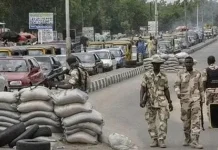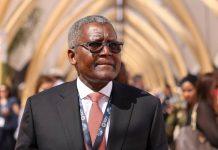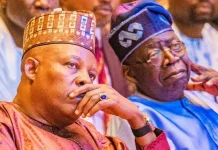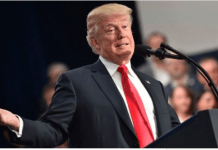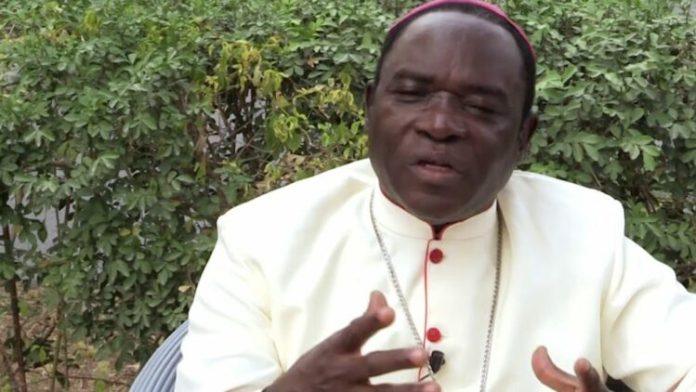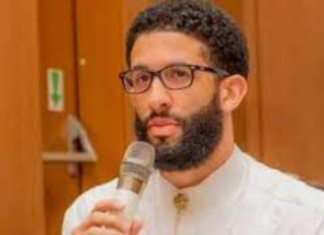In the Catholic Diocese of Sokoto, Matthew Hassan Kukah serves as the bishop. Speaking on the 65th anniversary of Nigeria’s independence, he discusses how the military invasion has been the country’s biggest setback in this interview that was shown on Arise TV. Among other topics, the clergy discuss poverty and illiteracy in Northern Nigeria. The following are extracts from Joy Anibogu:
When the British gave up their claim to Nigeria 65 years ago, a new era began. Do you recall it as a period of optimism, self-assurance, and faith in this nation?
Looking back, I can say that I was innocent for years. I was maybe five or six years old, but I can’t remember. Let me tell you what I do recall, though. My first encounter with a white person was with a clergyman. I had seen a priest for the second time in my life. Therefore, when our headmaster told us about these awful white people who had colonized and conquered our land, we had no idea what he was talking about. Because I hadn’t seen any other evil white people, I was unable to imagine. We were given small cups as part of the celebration, but what I remember most is that I received my first cup that I could call my own at the October 1st celebration. As a child, I was unable to square the cycle. Back to where we are now, though, every time I play the recording of Tafawa-Balewa’s life and listen to his lectures, I can’t help but cry. He was an amazing human being. This was a man whom Washington praised. Time Magazine named him man of the year for being the first African head of state, pointing out the direction that the rest of the world viewed Nigeria heading. The first military coup ended tragically with a suicidal mission. And that, in my opinion, is where the crime was committed both then and now. That’s where we lost our innocence, if you’re wondering what’s wrong with Nigeria and why we ended up where we are.
In the midst of all that optimism in the 1960s, before the coup and all of the rest, was it not clear to anyone who looked that Nigeria’s diverse population of ethnic groups, religious beliefs, and geographic divisions meant that anyone attempting to govern the country would only succeed if they could successfully manage that diversity?
That is a great point, in my opinion. However, to be fair, the equipment was already in place. When I was younger, I recall that our only goal was to observe the Sardauna’s appearance. Additionally, people in my small community were displaying us other things on these displays. We were blessed with everything good. After that, we had a bureaucracy that was genuinely unaware of a number of issues that are now haunting us, including religion, ethnicity, the hegemons, and so on. As a result, we had everything. People ask us why we aren’t like Singapore when they talk about Nigeria. Why don’t we resemble Japan? In actuality, we had the potential to surpass Singapore. Compared to Malaysia, we could have performed better. Since we already had a bureaucracy, we might have literally been better off and nobody would have been against us if the military hadn’t attacked. Yes, Lee Kuan Yew performed a very good job, but that is not the reason Singapore is the way it is. It’s that inherited bureaucracy, though. It also intensified the devastation of society and the bureaucracy. Ethnic consciences and identities then started to appear. Furthermore, I can attest that the majority of northerners in their 70s and 80s still find it difficult to accept the ruthless murder of the Sardauna and Tafawa-Balewa. It is unfortunate that our nation dislikes facing the facts. As Africans, we frequently say to forgive and forget. Even if the handle is outside, we bury the hatchet. In my opinion, up until now, we haven’t had the time, integrity, or sincerity to sit down at the table and ask, “Look, what went wrong?” This is the reason why our founding fathers’ dreams have turned into nightmares for us. And suddenly we found ourselves in a predicament where the hiring process had collapsed, whether it was for the bureaucracy or the public life. Therefore, I believe we can explain why we are in this position now.
You discuss the North’s suffering from the killings of the Sardauna and Tafawa-Balewa. But haven’t all sides paid a heavy price in blood?
Yes, but you see, there is elite conspiracy and hypocrisy, believing that Nigeria has simply devolved into a carcass and that everyone just brings long knives to the table. The chunks that they are returning to their villages also pique people’s curiosity. As a result, our feeling of national identity is now essentially invisible. Whenever I talk about this, I do so with the utmost respect for the military and the people who have led this nation. However, it isn’t about good or terrible warriors. It is that the military should never have been involved in politics in the first place. The soldiers themselves were beaten, according to book after book. This is now quite evident when people ask why we are not like Malaysia. Why don’t we resemble India? I inform them that not a single military coup has occurred in any of the Asian nations they listed. None of them, and once all of this was implemented, keep in mind that the military itself degenerated into a dysfunctional organization plagued by ethnic maggots. Now, people started planning coups based on things other than national objectives, such as collective interests. And two things always happen whenever we take a step in that direction. As a priest, I will tell you that, from a moral standpoint, there can be neither good nor bad rape. A good rape cannot exist. An armed robber is no different from you if you pulled a gun, shot someone, and then took control.
It has now been 65 years. The events that took place have already occurred. What, in light of all you’ve said, influences your perception of this nation today?
Mythology, not fact, is what nation-building is all about. America is a myth now. As you can see, however, Nigeria has lacked the aptitude and capability to dream. For instance, I’ve always advised people to close their eyes and consider whether they had ever heard a Nigerian president’s speech that left them feeling awed, following the 1960 speech. Or sometimes a speech, such as that of JFK in 1963, is so unforgettable that you have to question yourself, “What was I doing?” That raises another question: what is the philosophical basis of governance? All of our scholars can articulately discuss this because of what the soldiers did and individuals like Wole Soyinka, who showed that they were scaffolding and prevented intellect from being a dominant force after they realized they couldn’t win the intellectual fight. Thus, as they stated, individuals were imparting knowledge for which they were not compensated. Alright, so once you ruled out intelligence, it meant that the whole question of imagination was irrelevant. People like Plato and Aristotle were important because they spent time reflecting, and every company, including Nikon, was considering their next move. Those who have ideals about what a nice hotel should look like might not be present. Therefore, R&D is always a crucial part, although those individuals are never seen. Many people now ask you, “Where do we start?” after you made the decision that you came to power in that manner. The middle class is not always assessed in Naira terms, even if many in Nigeria claim that it has collapsed. This is also what the middle class is about. Therefore, I think that a big part of the problem is the rejection of the intellectuals and their policy contributions. People in government are making an effort, but it’s as good as they can. And every now and then you come across someone, perhaps a professor, who is composing a speech for the state’s first lady. Because they don’t want to lose their employment, some professors find themselves in situations that are so restrictive that they are unable to be creative. Therefore, you cannot make a country grow if you do not have the kind of society that Plato described, where intellectuals, policymakers, and policy implementers are present.
What is the enduring inspiration of your life in Nigeria, considering all of the criticisms you have listed, as you evaluate this nation and look to the future, well aware that we have missed the boat that sailed in 1960, as you accurately analyzed?
Being a man of hope is something I am grateful for. God, in his boundless charity, made me a priest, I tell myself repeatedly. Since I would have been homeless by now, I most likely would have passed away. The amount of unfairness you can tolerate has a limit. Fortunately, I’m really fortunate. I work hard, yet I’m an ordinary student, I promise. Second—and possibly more significant than my schooling—is the fact that I received my education on the streets. I am incredibly fortunate. I shall be given access to the Obi of Onitsha’s palace. I shall be allowed to enter the palace of the Sultan of Sokoto. It was only the day before yesterday that we were together. I shall have access to the palace of the Emir of Kano. I will have access to the former president’s home. I therefore have that exceptional quality, which I do not take for granted. However, I am also well-founded since my experience as a priest has given me a great deal of empathy for the underprivileged. But I also see that there are good people in this country. Many excellent people, including those in positions of authority, permit bad things to occur, primarily due to the hiring process. Too many people nowadays end up in positions of authority without any kind of preparation.
There, you brought up the issue of the impoverished. Are you motivated by your outrage at the egregiously limited opportunities for success that people born in Nigeria currently face, or are you motivated by the recollection of the poverty you witness on a daily basis?
This nation is unique. I get asked, “I travel the world.” “Where do you get the courage to talk about this country that is gone to the dogs?” people ask me. “Dude,” I said, “you haven’t seen anything yet.” I have a great deal of pride in our nation. In addition, I am aware of the things that people have done with just their hands. I head east, all well. The west is where I go. This country has seen me travel all around it. What is absent? resembles a man with an amazing eleven-player ensemble. All right, but the coach won’t know who to start or who to bench at what moment. The intelligence that we possess in Nigeria has turned into a source of envy. You are therefore not supposed to discuss your first class, for instance.
Given what you observe, what do you think your role in this nation is? Is it to strive to persuade the government to better provide for such deprivation, remove obstacles to a respectable quality of living, or something else entirely?
I’ll just give you an example of what happened recently in Sokoto to answer your question. I escorted President Olusegun Obasanjo and the Sultan of Sokoto to the Catholic facilities in Sokoto. Also, we put 250 laptops in a hall into service. Since they tell me there are 10 million, 20 million, and 25 million Almajiris, and so on. In ten years, if they are ten, fifteen, or twenty years old, they will be thirty or forty. All counts begin with one. For me, it is sufficient if I am able to remove only one person from the line. Believe me, I encounter young folks when I travel. I’ve met them a few times. I recall being late for a flight in Sokoto. And I was only a few seconds, somehow. I realized then that I had left my phone behind. The pilot was strolling around the aircraft when I arrived, and he practically bent down to welcome me. “I see you look very worried,” he said. “No, I forgot my phone,” I replied. Where, he said? Let him carry your phone. I replied, “My driver is on his way, but it will take some time.” “No,” he responded, “but we’ll wait for you.” I felt really ashamed. The pilot said to me, you know, when I got inside the plane. The pilot turned to face me. “You wrote a letter and a recommendation that got me a job as a pilot more than ten years ago,” he added. You won’t recall me. To catch a jet, I’m walking to the same aircraft. The pilot emerges, kneels in front of me, and says, “I served at your altar when you were in Lagos.” To put it another way, I’ve never attempted to inflate what I believe other people think of me. Despite everything I’ve been writing, my biggest surprise was realizing that people were actually reading what I had to say. I’ve also made an effort to understand that although it’s crucial to be out there, beating the pavement, we also need to create a space for dialogue.
As a Catholic bishop, how do you believe the relationship between Islam and Christianity has changed since the 1960s?
One of my favorite anecdotes, which I frequently share, is about how I was in the lounge at the Abuja airport and had never met John Pepper Clark. It was my first encounter with him. When someone exclaimed, “That’s John Pepper Clark,” I stood up to say hello. Someone then introduces themselves as Bishop Kukah, the Catholic bishop of the Diocese of Sokoto. And just as I was ready to shake hands with John Pepper Clark, this stranger appeared out of nowhere. He caught me off guard. I just said, “He’s Agbada,” and he would literally separate our hands. “Stop calling him the Sokoto Catholic Bishop,” he urged. He is our Sokoto Bishop. He’s not the bishop of Catholicism. He is not exclusively for Catholics. You can get nostalgic about how badly things have gotten worse when you have those kinds of experiences.
In Sokoto, we officially declared that many of the ministers and those we are calling Almajiri now are Almajiri. If you’re from Northern Nigeria, you’re an Almajiri at some time. That you had a chance, only. I now firmly believe that one of these Almajiris is an Einstein. For that kid, I have to make an opportunity. Of course, I am aware of what is likely to occur. Some merchants would tell you, “Ah, Bishop Kukah built this, so it’s only for Christians,” because their children are elsewhere. You become a Christian if you visit. We still haven’t, you know, and this tribe is expanding. As it stands, there are 25 million of these uneducated youngsters who will eventually have children of their own. As you are aware, in Northern Nigeria, you can be anywhere between 10 and 40 children. This nation is not growing at the moment. Take a look at the Bureau of Statistics’ multidimensional analysis of poverty. Only for the previous month. Zamfara has an 85 percent rate, whereas Sokoto has 90 percent. There is no other explanation for why the entire region that borders the country’s far north, where Muslims predominate, has turned into a crime scene today; it is tainted with areas of poverty, neglect, and desperation. I’m not a state, but I also don’t want the state to do everything, so I’m simply saying that if we can all bring something small to the table, that’s good. And the biggest problem facing Northern Nigeria and all the governors is: Could you kindly open the doors and then see how we can work together?
Join Television Nigerian Whatsapp Now
Join Television Nigerian Facebook Now
Join Television Nigerian Twitter Now
Join Television Nigerian YouTUbe Now

![Kidnapped Fulani Man Rescued by Troops in Taraba [Photos]](https://tvn.ng/wp-content/uploads/2025/12/MixCollage-03-Apr-2024-09-26-AM-6124-218x150.jpg)
